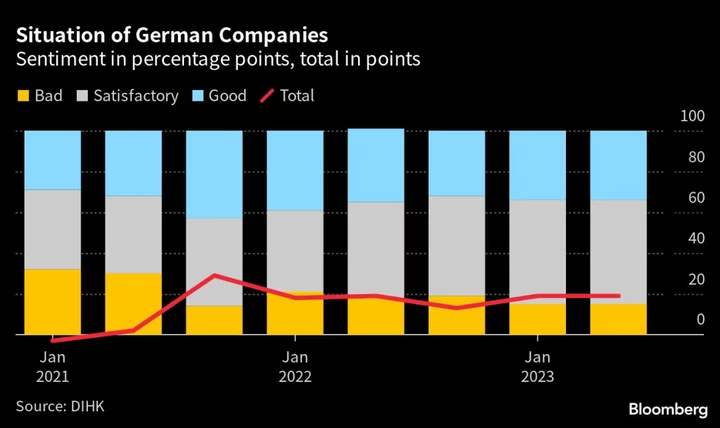
Greece's center-right in landslide election victory, but will need new vote to form government
It was the most tantalizing of victories. Despite inflicting the most crushing defeat in half a century on the opposition, Greece's center-right Prime Minister Kyriakos Mitsotakis is expected Monday to seek a second national election within weeks, as he lacks the majority in Parliament to govern alone. With 99.55% of the votes counted early Monday, Mitsotakis' New Democracy party won 40.79% — twice the leftwing main opposition Syriza's 20.07%. Socialist Pasok came in third at 11.46%. The margin far outstripped pollsters' forecasts and was the biggest since 1974, when Greece's first democratic elections were held after the fall of the seven-year military dictatorship. But the one-off proportional representation system in effect Sunday means ND only gains 146 of Parliament's 300 seats, five short of a governing majority. The new elections, expected in late June or early July, will revert to the previous system that grants the first party a bonus of up to 50 seats. That would ensure Mitsotakis a comfortable majority for a second term in power. Later Monday, Greek President Katerina Sakellaropoulou is due to hand Mitsotakis the mandate to try to form a coalition government — which he is expected to return. Hours after voting ended Sunday, the 55-year-old prime minister said he would “follow all constitutional procedures” but strongly implied he would not engage in coalition talks. “Without a doubt, the political earthquake that occurred today calls on us all to speed up the process for a definitive government solution so our country can have an experienced hand at its helm as soon as possible,” he said. Mitsotakis had long suggested he would not seek a coalition partner whatever the election outcome, advocating instead the stabilizing effect of strong, undivided governance. If Mitsotakis hands back the mandate, it will then pass to Syriza leader Alexis Tsipras, and then to Pasok leader Nikos Androulakis — neither of whom have any realistic chance of success. Each will have a maximum of three days to try to form a coalition. Once all options are exhausted, a senior judge will be appointed caretaker prime minister and new elections called. Tsipras, 48, called Mitsotakis on Sunday night to congratulate him. “The result is exceptionally negative for Syriza,” he said in initial statements. “Fights have winners and losers.” Tsipras, who was prime minister from 2015 to 2019, said his party would gather to examine the results and how they came about. “However, the electoral cycle is not yet over,” he said. “We don’t have the luxury of time. We must immediately carry out all the changes that are needed so we can fight the next crucial and final electoral battle with the best terms possible.” Mitsotakis, a Harvard-educated former banking executive, came to power in 2019 on a promise of business-oriented reforms and has vowed to continue tax cuts, boost investments and bolster middle-class employment. He has been credited with Greece’s successful handling of the pandemic and of two crises with neighboring Turkey, while overseeing high growth and job creation after the end of Greece's 2009-2018 financial crisis, but a wiretapping scandal and a railway disaster damaged his ratings. Read More Ukraine war’s heaviest fight rages in east - follow live Charity boss speaks out over ‘traumatic’ encounter with royal aide AP News Digest 3 am Greece prime minister Mitsotakis hails election victory as ‘political earthquake’ Polls open in Greece's first election since international bailout spending controls ended
1970-01-01 08:00

Ryanair Beats, M&S at Consumers’ Whim: EMEA Earnings Week Ahead
From low-cost airline Ryanair Holdings Plc to clothing and food chain Marks & Spencer Group Plc, earnings this
1970-01-01 08:00

Sri Lanka Eyes Chinese Tourism to Help Ease Debt Crisis
Sri Lanka is mulling measures to lure back Chinese tourists in a bid to alleviate an unprecedented debt
1970-01-01 08:00

Germany Business Gloom in Survey Points to Zero Growth for 2023
German companies aren’t seeing any evidence of an pickup taking hold in Europe’s biggest economy, according to a
1970-01-01 08:00

China’s New Covid Wave Set to See 65 Million Cases a Week
China is likely to see its Covid-19 wave peaking at about 65 million infections a week toward the
1970-01-01 08:00

Adani Stocks Surge, Head for Best Day Since Hindenburg’s Report
Adani Group shares surged on Monday, extending gains spurred by an Indian court panel’s report that found no
1970-01-01 08:00

China’s Buying a Lot of Commodities From Russia, Just Not Wheat
China’s wheat imports are booming, but one top supplier is missing out: Russia. The Asian nation is on
1970-01-01 08:00

NatWest to Buy Back £1.3 Billion of Shares From UK Government
NatWest Group Plc has agreed to buy back £1.26 billion ($1.6 billion) of its shares from the UK
1970-01-01 08:00

A Rare Shift in Crypto Volatility Offers Ether a Boost Relative to Bitcoin
Volatility gauges suggest traders expect smaller near-term swings in Ether compared with Bitcoin, a reversal of the usual
1970-01-01 08:00

India Removing 2,000 Rupee Note May Spur Gold, Property Rush
India withdrawing its highest value currency notes from circulation may push some consumers to buy precious metals and
1970-01-01 08:00

Greece prime minister Mitsotakis hails election victory as ‘political earthquake’
Greek prime minister Kyriakos Mitsotakis hailed his party’s victory in the parliamentary elections as a “political earthquake” after the conservatives secured a smashing win but fell short of forming a majority. With most votes counted after the election on Sunday, the ruling New Democracy party has secured a commanding lead with 40.8 per cent of the votes, while the previous governing party, Syriza, trailed far behind with 20.1 per cent for the 300-seat Hellenic Parliament. However, Mr Mitsokais’s party fell just short of the majority required to form a government on its own, as the fate of the new government still hangs in limbo. According to projections by Greece's interior ministry, New Democracy is expected to win 145 seats in parliament, which is six seats shy of an absolute majority. Starting from Monday, Greek president Katerina Sakellaropoulou will give the top three parties - New Democracy, Syriza, and the Socialist PASOK – three days each to attempt to form a coalition government. If all three parties fail, Ms Sakellaropoulou will appoint a caretaker government to prepare for new elections to be held approximately a month later. Without Mr Mitsotakis, the numbers for potential coalitions do not add up, as Syriza has 72 seats, PASOK has 41 seats, the Communist KKE party has 26 seats, and the right-wing Hellenic Solution party has 16 seats. The KKE party has already stated that it will not participate in any alliance, while the Hellenic Solution party has been critical of both New Democracy and Syriza. Mr Mitsotakis, who served as prime minister and leader of the New Democracy leader, had expressed his desire for a strong one-party government, but he believes that the election results provide a clear mandate. Addressing supporters outside party headquarters in Athens, Mr Mitsotakis called his party’s victory a “political earthquake”. "The ballot results are decisive. They show that New Democracy has the approval of the people to rule, strong and autonomous." This victory for Mr Mitsotakis is quite significant, as his administration faced numerous challenges, including a wiretapping scandal, the Covid-19 pandemic, a cost of living crisis, and a fatal rail crash that sparked public outrage. However, it comes as a significant setback for Syriza and its leader Alexis Tsipras, who rose to power in 2015 on the wave of public dissatisfaction with other parties' handling of the debt crisis that severely impacted Greece's economy for over a decade. The MeRA25 movement, led by former Syriza finance minister Yanis Varoufakis, failed to secure any seats in parliament. Mr Tsipras, who congratulated Mr Mitsotakis on his win, noted that the race is not over and talked about the possibility of a second election. “Battles have wins, and losses,” he said. “The electoral cycle has not ended yet ... it is very possible there will be a second election.” Greece faced the threat of a eurozone exit during the height of its debt crisis in 2015, leading to the country accepting a third bailout under Mr Tsipras' leadership. Mr Mitsotakis, elected in 2019, focused his campaign on improving the financial conditions of the Greek people, promising to raise wages and pensions that were cut during the crisis. Panos Koliastasis, an adjunct assistant professor of politics at the University of Peloponnese, attributed Mitsotakis' victory to his emphasis on addressing financial concerns and his clear proposal for an autonomous government. “He also had a clear proposal of (how) he will be in power - that of an autonomous government,” he said. “The alternative of Syriza, of a coalition government, wasn’t that realistic because others refused to cooperate.” The elections in Greece are held every four years to determine the composition of the 300-seat parliament. Additional reporting by agencies Read More Focus on coalition horse-trading as Greek election looks unlikely to deliver a strong winner Out of bailout spotlight, Greeks feeling recovery pains at election Daughters’ desperate plea after British grandmother vanishes on Greek island Polls open in Greece's first election since international bailout spending controls ended Focus on coalition horse-trading as Greek election looks unlikely to deliver a strong winner Out of bailout spotlight, Greeks feeling recovery pains at election
1970-01-01 08:00

Ryanair Expects Summer Demand to Drive Profit, Fare Increase
Ryanair Holdings Plc predicted strong demand in the peak summer season will drive a 10% increase in passenger
1970-01-01 08:00
